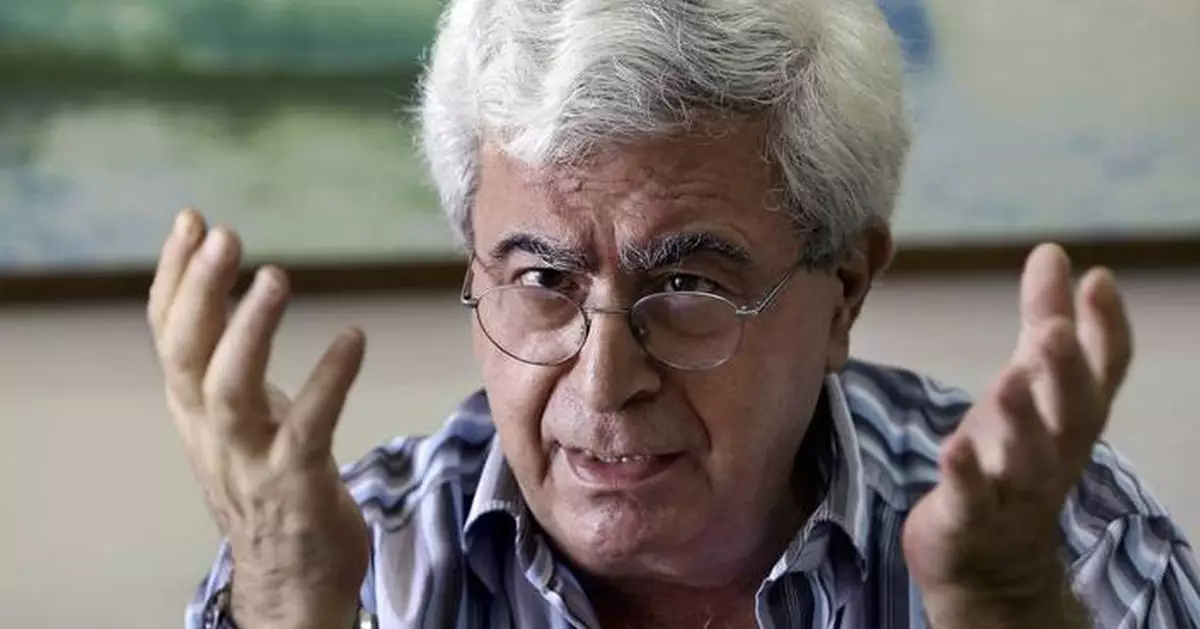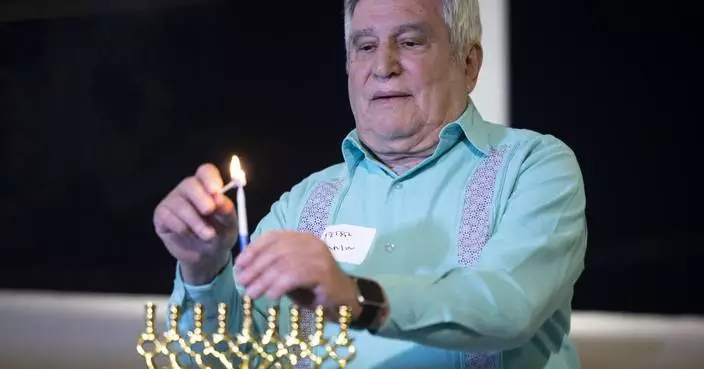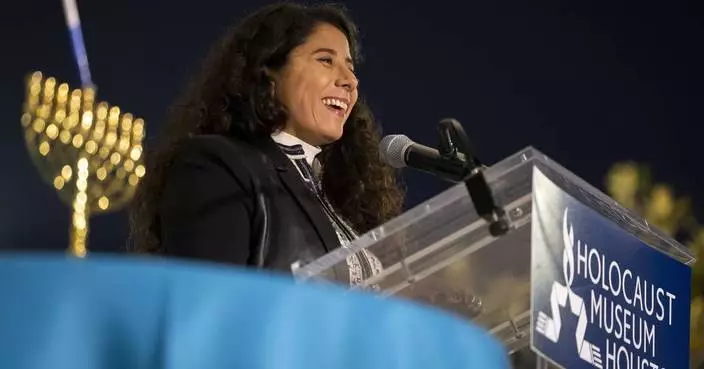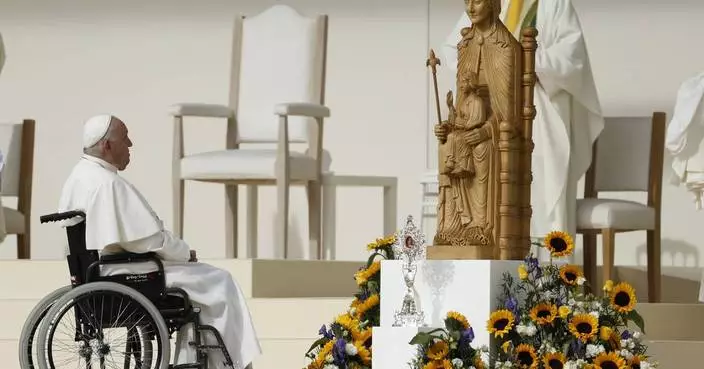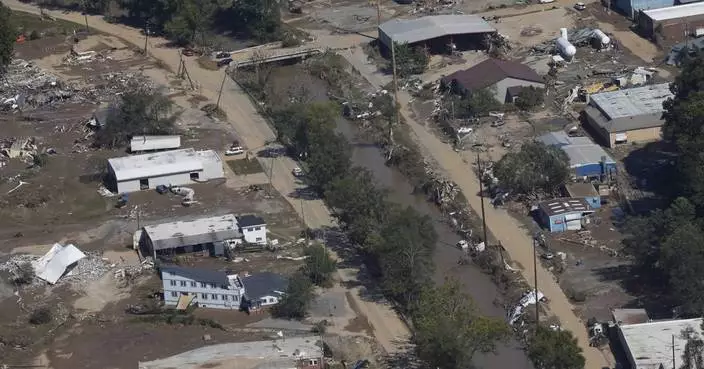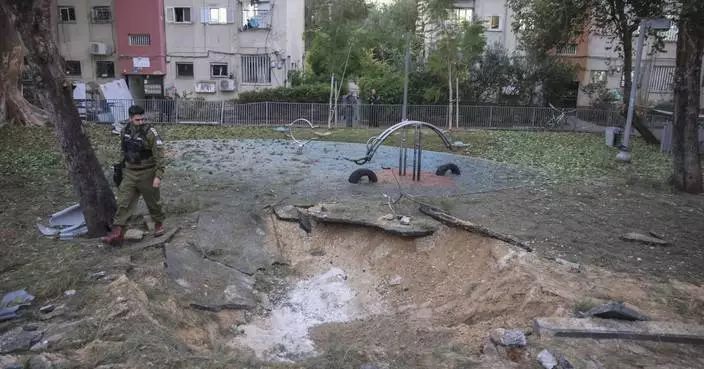BEIRUT (AP) — Lebanese novelist Elias Khoury who dedicated much of his writings to the Palestinian cause and taught at universities around the world, making him one of Lebanon’s most prominent intellectuals, has died. He was 76.
Khoury, a leading voice of Arab literature, had been ill for months and admitted and discharged from hospital several times over the past year until his death early Sunday, Al-Quds Al-Arabi daily that he worked for said.
The Lebanese writer, born and raised in Beirut, was outspoken in defense of freedom of speech and harsh criticism of dictatorships in the Middle East.
In addition to his novels, Khoury wrote articles in different Arab media outlets over the past five decades making him well known throughout the Arab world.
Two days after the Israel-Hamas war broke out on Oct. 7, Khoury wrote an article in Al-Quds A-Arab daily titled “It’s Palestine.” Khoury wrote then that “the biggest open-air prison, the besieged Ghetto of Gaza, has launched a war against Israel, occupied settlements and forced settlers to flee.”
Born in Beirut on July 12, 1948, Khoury had been known for his political stances from his support of Palestinians to his harsh criticism of Israel and what he called its “brutal” settling policy in Palestinian territories. He studied at the Lebanese University and later at the University of Paris, where he received a PhD in social history.
"The Catastrophe began in 1948 and it is still going on,” he once wrote referring to Israel’s settlement policies in occupied Palestinian territories. The “nakba,” or “catastrophe” is a term used by many Arabs to describe the displacement of hundreds of thousands of Palestinians when Israel was created in 1948.
Khoury was an outspoken supporter of Arab uprisings that broke out in the region starting in 2011 and toppled several governments.
“The question is not why the Arab revolts broke out,” Khoury wrote after uprisings that toppled long-serving leaders such as Hosni Mubarak of Egypt and Tunisia’s Zine El Abidine Ben Ali. “The question is not how people tore down the wall of fear but how fear built Arab kingdoms of silence for five decades.”
Khoury, who belonged to a Greek Orthodox Christian family, took part in Lebanon’s 1975-90 civil war and was wounded in one of the battles.
From 1992 until 2009, Khoury was the editor of the cultural section of Lebanon’s leading An-Nahar newspaper. Until his death, he was the editor-in-chief of the Palestine Studies magazine, a bulletin issued by the Beirut-based Institute for Palestine Studies.
His first novel was published in 1975, but his second, Little Mountain, which he released in 1977 and was about Lebanon’s devastating civil war was very successful.
Bab al-Shams, or Gate of the Sun, released in 2000, was about Palestinian refugees in Lebanon since 1948. A movie about the novel was made in Egypt.
His novels were translated to several languages including Hebrew.
Khoury also taught at different universities including New York University, Columbia, Princeton and Houston, as well as the University of London.
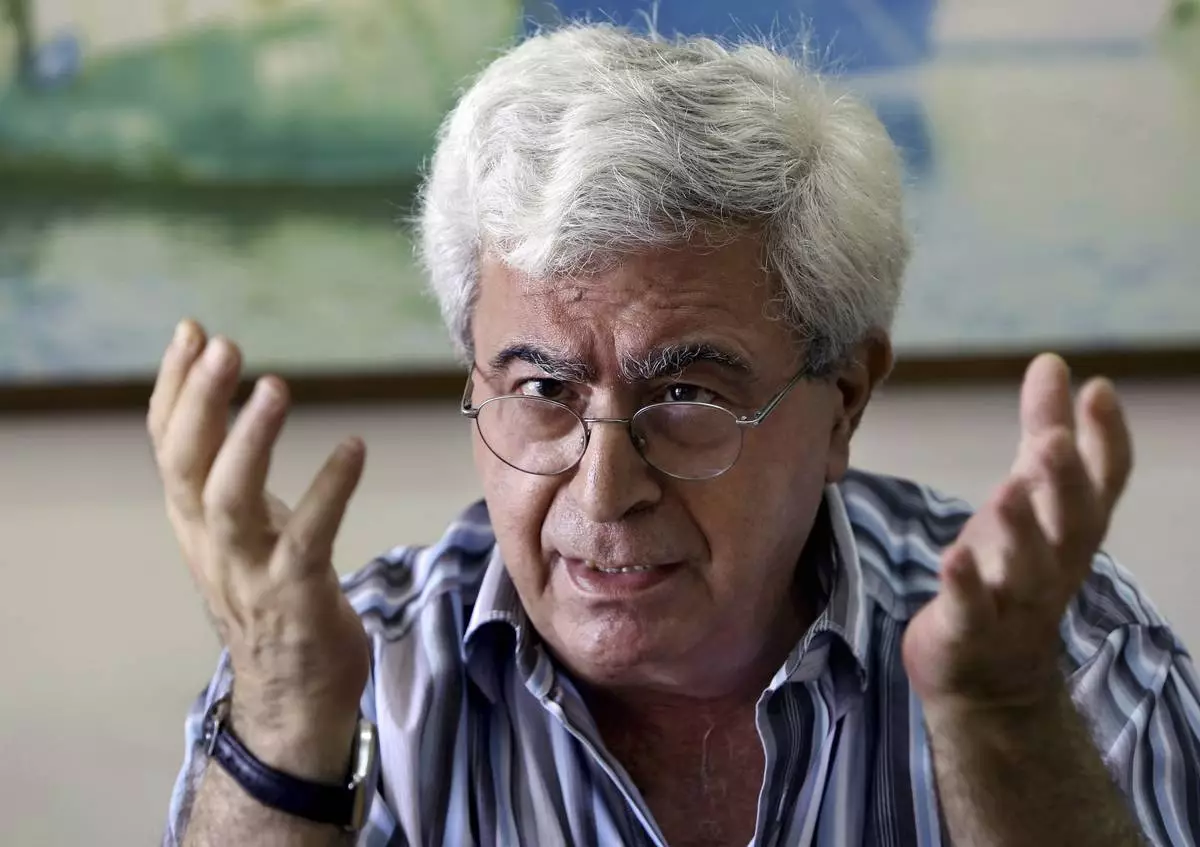
FILE - Lebanese prominent writer and intellectual Elias Khoury speaks during an interview with The Associated Press at his office in the Institute for Palestine Studies in Beirut, Lebanon, Friday, Aug. 8, 2014. (AP Photo/Bilal Hussein, File)
The path for the NFL's Washington Commanders to return to the nation’s capital is clear after an on-again, off-again saga in Congress ended early Saturday with a postmidnight reprieve.
The U.S. Senate passed a resolution to transfer the land including old RFK Stadium from the federal government to the District of Columbia. The D.C. Robert F. Kennedy Memorial Stadium Campus Revitalization Act passed by voice vote at roughly 1:15 a.m. after more than a year of lobbying and support from Rep. James Comer, R-Ky., district Mayor Muriel Bowser, Commanders controlling owner Josh Harris and NFL Commissioner Roger Goodell.
“We are extremely grateful that our elected officials have come together on a bipartisan basis to give Washington, D.C., the opportunity to decide on the future of the RFK Stadium site," Harris said. "This bill will create an equal playing field so that all potential future locations for the home of the Washington Commanders can be fairly considered and give our franchise the opportunity to provide the best experience for all of our fans.”
The RFK Stadium land provision was part of Congress’ initial short-term spending bill Tuesday before it was torpedoed by President-elect Donald Trump and Elon Musk, the latter of whom amplified misinformation about the site on his social media platform X. Two versions of the House's slimmed-down bill, including the one that passed Friday night to avoid a government shutdown, did not include it.
Giving the local government control of the land for the next 99 years allows for the decaying husk of the old stadium to be torn down and the site redeveloped for any number of things. One of the possibilities is a football stadium and surrounding entertainment options at the franchise's former home.
“We appreciate the bipartisan group of Congressional leaders who made this important breakthrough possible,” the NFL said in a statement. “Washington, D.C., will now have a long-overdue seat at the table when it comes to the location of a new Commanders stadium.”
Bowser called it “a win for D.C., for our region and for America.”
“Everybody loves a good comeback story — and that’s D.C.’s story,” she said.
All that awaits is President Joe Biden's signature to become law, which could come as soon as Saturday. Comer went as far as saying that Senate passage of the bill is “a historic moment for our nation's capital.”
“If Congress failed to act today, this decaying land in Washington would continue to cost taxpayers a fortune to maintain,” he said. “Revitalizing this RFK Memorial Stadium site has been a top economic priority for the city. ... This bipartisan success is a testament to the House Oversight Committee’s unwavering effort to protect taxpayers and our full commitment to ensuring a capital that is prosperous for residents and visitors for generations to come.”
Playing in Washington again is no sure thing. The Commanders are also considering other places in the district, Maryland and Virginia to build a stadium in the coming years.
Their lease at Northwest Stadium in Landover, Maryland, runs through 2027. Harris called 2030 a “reasonable target” for a new stadium.
The team played at RFK Stadium 2 miles (3.22 kilometers) east of the Capitol from 1961-96 before moving to Maryland. Harris and several co-owners, including Mitch Rales and Mark Ein, grew up as Washington football fans during that era, which included the glory days of three Super Bowl championships from 1982-91.
Ein said on social media, “Still many steps to go and even bigger than a possible stadium last night’s bill was an extraordinary moment of bi-partisan and regional cooperation to do something big and important and get 174 acres of unused, blighted and critical land to DC so they can bring it back to life.”
Part of the way the provision got into the bill initially involved an agreement between the team and Maryland to tear down the current stadium in a timely fashion and redevelop the site with a project of equal economic impact, a person with knowledge of the situation told The Associated Press earlier this week on condition of anonymity because the deal was not being publicized.
After the Senate greenlit the RFK Stadium land transfer, Maryland Sens. Ben Cardin and Chris Van Hollen, both Democrats, said they continued to believe their state's partnership with the team should continue long into the future.
“After working to level the financial playing field, and receiving assurances that should the team move they will redevelop the existing site in a manner that meets the needs of the community, tonight we supported the proposed land transfer legislation,” Cardin and Van Hollen said. "We have always supported the District’s effort to control its own land, and through regional discussions and cooperation, our concerns with this proposal have been addressed.”
The team has played games in Maryland since 1997 and practices in Ashburn, Virginia, not far from Dulles International Airport.
A return to the district would be another victory for Bowser, who on Thursday celebrated the start of an $800 million downtown arena renovation that is keeping the NBA's Wizards and NHL's Capitals in town. At that news conference, she took aim at Musk for sharing incorrect information on X, formerly Twitter, about taxpayers footing the bill for a new stadium.
The bill specifically prohibits the use of federal funds for a stadium on the site, “including training facilities, offices, and other structures necessary to support a stadium.”
AP NFL: https://apnews.com/hub/nfl

FILE - A vehicle pushes up pikes of snow after trucks dump their loads of snow in the parking lots of RFK Stadium in Washington, Monday, Jan. 25, 2016. (AP Photo/Susan Walsh, File)



